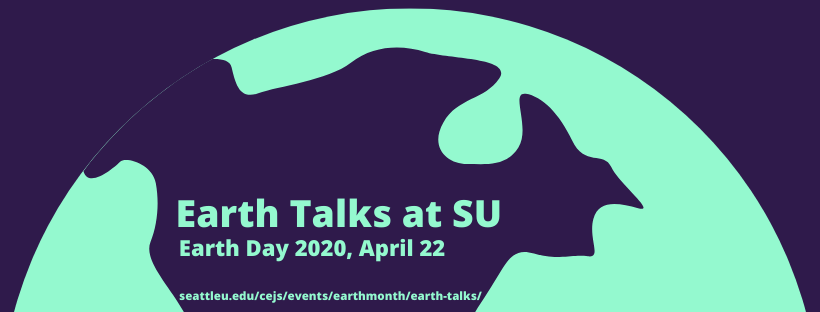
Earth Talks 2020
EARTH TALKS 2020
Thank you to everyone who tuned in to SeattleU’s first edition of “EarthTalks”: 250+ people joined us on April 22nd to celebrate the 50th anniversary of Earth Day and learn from students, faculty, and community members about environmental justice, climate action, and sustainability related research, initiatives, service and activism. WATCH ALL EARTH TALKS HERE.
See Earth Talks in the news:
Earth Talks Schedule
ZOOM LINK FOR THIS EVENT: http://Earth-Talks.org
Earth Talks is a virtual event of short 5-minute presentations by faculty, students, and community partners about environmental justice and sustainability research, service and activism. The event takes place on Earth Day, April 22nd, at 11:00AM-12:00PM (session 1) and 2:00PM-3:15PM (session 2) and will kick-off with a special interview with Denis Hayes who organized the first Earth Day in 1970.
Tune in live and bring your team, class, or club to this online celebration of Earth Day's 50th anniversary!
Session 1, 11:00am-12:00pm. ZOOM WEBINAR LINK: http://Earth-Talks.org
- Welcome by Dr. Phillip Thompson, Director of the Center for Environmental Justice and Sustainability (CEJS)
- Welcome by President Stephen Sundborg, S.J. Watch video here.
- Interview with Earth Day co-founder Denis Hayes. Watch video here.
- Falling In Love With The Land. Wes Howard-Brook (faculty). Watch video here.
- Confronting Global Challenges – What We Can Learn From Climate Change Science. Beate Liepert (faculty). Watch video here.
- Pursuing Environmental & Health Justice: The Beacon Hill Seattle Story. Maria Batayola (community partner). Watch video here.
- Aquaponics on Campus and Abroad. Robert Wooldridge (student). Watch video here.
- How to Talk to the Other Side – Sustainable Tools for Finding Common Ground. Kevin Wilhelm (affiliate faculty). Watch video here.
- Agriculture, Awareness, and Advocacy: Community Gardening as a Tool for Social Change. Melanie Henderson-Sjoberg (student) Watch video here.
- Stop the Money Pipeline to Fossil Fuels. Sulakshana (community partner) Watch video here.
At the end of the first session, at 12:00PM, attendees are welcome to join us in the nationwide climate prayer in solidarity with Interfaith Power & Light as part of Faith Climate Action week. Rev. Victoria Carr-Ware of Campus Ministry will lead the prayer for SeattleU (12:00-12:10PM, Zoom link http://Earth-Talks.org). Watch the video here.
Session 2, 2:00pm-3:15pm. ZOOM WEBINAR LINK: http://Earth-Talks.org
- Welcome by Dr. Phillip Thompson, Director of the Center for Environmental Justice and Sustainability (CEJS). Watch video here.
- Interview with Earth Day co-founder Denis Hayes. Watch video here.
- Environmental Learning and COVID 19. Mitchell Thomashow (affiliate faculty). Watch video here.
- Environmental Racism and the Nuclear Fuel Cycle. Hanna-Marie Lucero (student). Watch video here.
- Sustainable Business—Oxymoron? or Business Imperative? April Atwood (faculty). Watch video here.
- Investing in a Sustainable Future. Sadie Lopez, Emily Nielsen (students) Watch video here.
- Dining Together Online. Harriet Stephenson (faculty). Watch video here.
- Sports and Sustainability. Brian McCullough (faculty). Watch video here.
- Where are the Leftovers? Taylor McKenzie and Dae Durisko (students). Watch video here.
- Greenwashing - We Can All Do Better. Nicole DeNamur (affiliate faculty). Watch video here.
- Call an Online Climate Assembly Where You Live. Michael Foster (community partner). Watch video here.
Earth Talks Speakers and Presentations
Interview with Earth Day Organizer Denis Hayes
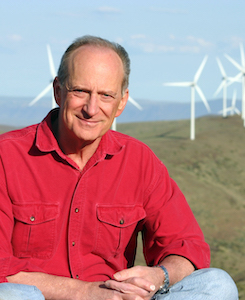
As president of the Bullitt Foundation, Denis Hayes leads an effort to mold the major cities of the Pacific Northwest and British Columbia into models of sustainability for a rapidly urbanizing planet. The Foundation applies ecological principles to the design of healthy, resilient human ecosystems. Under his leadership, the Foundation designed and constructed the Bullitt Center—the world’s greenest office building—which it operates as a commercial enterprise. Denis was the principal national organizer of the first Earth Day in 1970 and took the event international in 1990. He has received the national Jefferson Awards Medal for Outstanding Public Service as well as many other awards. Time Magazine named him as "Hero of the Planet" in 1999.
Falling In Love With the Land
We all know the depressing statistics and predictions about climate change and other, ongoing environmental disasters. Yet often, our response is discouraged resignation, a depressing feeling of powerlessness. I suggest that the starting point for practices of sustainability is falling in love. How would it FEEL like to transform our relationship with "the earth" from the realm of ideas into a passionate love affair? As indigenous writers, bioregionalists, and Pope Francis all agree, we cannot give ourselves to "another," whether a person or a planet, without experiencing a bodily bond between us. I will talk about my love for Tiger Mountain in the Issaquah Creek watershed outside the door of our home, as an example and, one hopes, an inspiration for others to fall in love with an earth place.
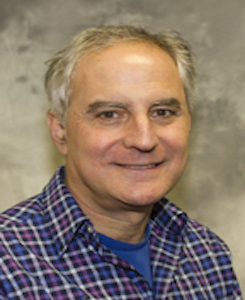 Wes Howard-Brook has been teaching and writing at the intersection of church, society and academy since 1988. Currently, in addition to sitting on the College of Arts and Sciences Curriculum Committee, Wes teaches theology and scripture at Seattle University and at churches and gatherings around the Pacific Northwest and the U.S. Previously, Wes was an attorney for the federal and Washington state governments, including a stint as counsel to the US Senate Judiciary Committee (1981-83). He is the author of several books, including Unveiling Empire, The Church Before Christianity, Becoming Children of God, and co-editor of The New Testament: Introducing the Way of Discipleship
Wes Howard-Brook has been teaching and writing at the intersection of church, society and academy since 1988. Currently, in addition to sitting on the College of Arts and Sciences Curriculum Committee, Wes teaches theology and scripture at Seattle University and at churches and gatherings around the Pacific Northwest and the U.S. Previously, Wes was an attorney for the federal and Washington state governments, including a stint as counsel to the US Senate Judiciary Committee (1981-83). He is the author of several books, including Unveiling Empire, The Church Before Christianity, Becoming Children of God, and co-editor of The New Testament: Introducing the Way of Discipleship
Confronting Global Challenges – What We Can Learn From Climate Change Science
Governor Inslee talked about “science-based decision making” when he ordered to shelter-in-place on March 23rd, 2020. Science-based decision making in this case meant weighing the public health risks of various scenarios (“do nothing”, “social distancing”) with the economic impacts of these measures. None of this is unfamiliar to a climate scientist. For decades, the climate community has been teaming up with scientists from other disciplines to predict the future of the climate and its various impacts on economy and society under a wide spectrum of “life choice” scenarios. Sadly, the climate community was not able to convince decision makers to act, and each year brings new climate disasters. On the other hand, through this process the climate community developed invaluable scientific tools and frameworks, which can be applied to other global challenges such as pandemics, to help society choose the appropriate path and weigh the risks.
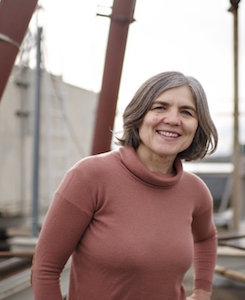 Beate Liepert is a lecturer in the department of civil and environmental engineering at SeattleU. She has been working as climate scientist since the 1990s at Columbia University’s Lamont Doherty Earth Observatory in New York City, the Max Planck Institute for Meteorology in Hamburg, and at Northwest Research Associates in Redmond WA. She is author of over 50 research articles and was contributing author of the Intergovernmental Panel on Climate Change 4th Assessment Report that was awarded the Nobel Peace Prize in 2006. Her work is portrayed in the BBC documentary “Dimming the Sun”. Beate received her PhD in meteorology from the department of physics of the Ludwig Maximilians University in Munich.
Beate Liepert is a lecturer in the department of civil and environmental engineering at SeattleU. She has been working as climate scientist since the 1990s at Columbia University’s Lamont Doherty Earth Observatory in New York City, the Max Planck Institute for Meteorology in Hamburg, and at Northwest Research Associates in Redmond WA. She is author of over 50 research articles and was contributing author of the Intergovernmental Panel on Climate Change 4th Assessment Report that was awarded the Nobel Peace Prize in 2006. Her work is portrayed in the BBC documentary “Dimming the Sun”. Beate received her PhD in meteorology from the department of physics of the Ludwig Maximilians University in Munich.
Pursuing Environmental & Health Justice: The Beacon Hill Seattle Story
Learn what happens when a nice, welcoming and diverse Beacon Hill faces the adverse health effects of air and noise pollution from the vehicles of progress - cars, trucks, trains and airplanes; only to find that there will be more -- as environmental and health injustice intersects with climate change.
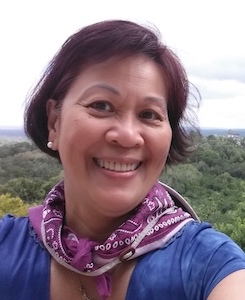 Maria Batayola is a writer and long time community equity and inclusion activist. A 1.5 Filipino immigrant, she led diversity, inclusion and equity programs for Metro and King County government for thirty years. She co-founded the anti-domestic violence/human trafficking Asian Pacific Islander Women & Safety Center, the Community Coalition for Environmental Justice, the Theatrical Ensemble of Asians and Kultura Arts. She currently serves as Environmental Justice Coordinator for El Centro De La Raza and chairs the Seattle Beacon Hill Council. She owns Jump Start, an organizational and community development consulting service.
Maria Batayola is a writer and long time community equity and inclusion activist. A 1.5 Filipino immigrant, she led diversity, inclusion and equity programs for Metro and King County government for thirty years. She co-founded the anti-domestic violence/human trafficking Asian Pacific Islander Women & Safety Center, the Community Coalition for Environmental Justice, the Theatrical Ensemble of Asians and Kultura Arts. She currently serves as Environmental Justice Coordinator for El Centro De La Raza and chairs the Seattle Beacon Hill Council. She owns Jump Start, an organizational and community development consulting service.
Aquaponics on Campus and Abroad
Aquaponics refers to any system that combines conventional aquaculture with hydroponics in a symbiotic environment. The Engineers for a Sustainable World club plans to create a small test system on campus to prove both the environmental and economical benefits of such a system. The system we would use utilizes fish and vegetable in a symbiotic relationship that allows for the growth and harvest of both with increased sustainability. It is also a very good economical choice by the university if we are able to grow our own food, we could cut costs for dining and allow for a more environmentally conscience system of growing food for Seattle University students. In his talk, Robert will cover the benefits of such a system, the plans for the ESW system and the possible benefits of a larger scale system here at Seattle University.
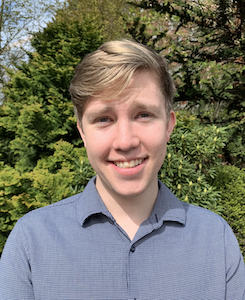 Robert Wooldridge is a Mechanical Engineering major and is president of Engineers for a Sustainable World. He also enjoys leading trips with UREC and exploring the outdoors.
Robert Wooldridge is a Mechanical Engineering major and is president of Engineers for a Sustainable World. He also enjoys leading trips with UREC and exploring the outdoors.
How to Talk to the Other Side – Sustainable Tools for Finding Common Ground
We are at a time when people only want talk to those on “their side.” This lack of civil discourse is keeping us from addressing our greatest social, environmental, and political issues. Our political system is as partisan as ever and this is keeping us from addressing the many socio-economic, environmental and equity issues that our society needs to work to solve. This talk will be about hope, positivity and optimistic ways to bridge that gap, using sustainability solutions that are win-win solutions for all sides. Specifically, Mr. Wilhelm will address ways in which to talk about all three aspects of sustainability as it relates to the following divergent groups: Climate Deniers & Advocates, Republicans & Democrats, Rural America & Urbanites, and Renewable Energy & Fossil Fuel Advocates.
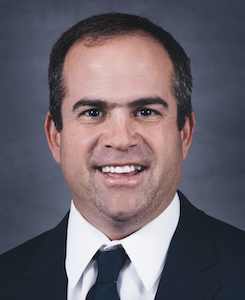 Kevin Wilhelm is an Affiliate of Seattle University. CEO of Sustainable Business Consulting and is one of the world’s pre-eminent business consultants and teachers in the field of sustainability. Mr. Wilhelm has 21 years of experience working with 165+ clients in 37 industries including: Amazon, New York Life, Expedia, Nordstrom, REI, Alaska Airlines, The North Face, Expeditors, PSE, the Seattle Sounders, Whole Foods, the Cities of Seattle & Tacoma and the Norwest Seaport Alliance. He has taught 12 different courses in sustainability both in online and in-person formats at nine institutions, has lectured across the country hundreds of times including two TEDx Talks. Kevin is the author of six acclaimed books in this field including the just released: How to Talk to the Other Side: Sustainable Tools for Finding Common Ground. (2020) Lulu
Kevin Wilhelm is an Affiliate of Seattle University. CEO of Sustainable Business Consulting and is one of the world’s pre-eminent business consultants and teachers in the field of sustainability. Mr. Wilhelm has 21 years of experience working with 165+ clients in 37 industries including: Amazon, New York Life, Expedia, Nordstrom, REI, Alaska Airlines, The North Face, Expeditors, PSE, the Seattle Sounders, Whole Foods, the Cities of Seattle & Tacoma and the Norwest Seaport Alliance. He has taught 12 different courses in sustainability both in online and in-person formats at nine institutions, has lectured across the country hundreds of times including two TEDx Talks. Kevin is the author of six acclaimed books in this field including the just released: How to Talk to the Other Side: Sustainable Tools for Finding Common Ground. (2020) Lulu
Agriculture, Awareness, and Advocacy: Community Gardening as a Tool for Social Change
Community garden programs engender various individual, communal, and ecological benefits that are vital in the creation of sustainable cityscapes. They promote active citizenship by providing a non-commercial natural gathering space for community members to engage in transdisciplinary intergenerational collaboration and place-based learning. CGPs can potentially serve as a tool to foster awareness of and engagement in the Environmental Movement. The primary focus of this talk would be the crucial nature of the relation between social and environmental issues. My hope is to frame community garden programs as an important means of cultivating social cohesion and environmental stewardship.
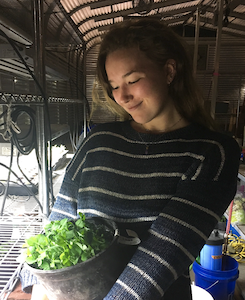 Melanie Henderson-Sjoberg is an Environmental Studies and Sociology Major from Portland, OR. She works on campus as the Edible Campus Initiative Coordinator, utilizing urban agriculture to foster environmental awareness and community engagement.
Melanie Henderson-Sjoberg is an Environmental Studies and Sociology Major from Portland, OR. She works on campus as the Edible Campus Initiative Coordinator, utilizing urban agriculture to foster environmental awareness and community engagement.
Stop the Money Pipeline to Fossil Fuels
Since the outset of the coronavirus, the fossil fuel industry has attempted to profiteer off the crisis, pushing forward with the construction of dangerous pipelines like Keystone XL, Line 3, and Coastal GasLink. These projects exacerbate the ongoing climate crisis, infringe on Indigenous rights, and endanger public health by contributing to the spread of the virus in rural communities and on tribal lands. One way that we can stand in solidarity with communities fighting these projects is by tracing the money behind them and pressuring financial backers like banks, insurers, and investors. Learn more about the movement targeting financial institutions like Chase and Liberty Mutual – and what you can do to pressure these key targets.
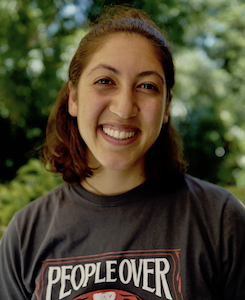 Sulakshana is a campaigner at Rainforest Action Network, focused on stopping the U.S. insurance industry from driving the climate crisis. She has been active in the climate justice movement for the last eight years, most recently organizing for just and equitable climate policy in Washington State, fighting fracking in the U.K., and campaigning for universities to divest from fossil fuels and reinvest in communities.
Sulakshana is a campaigner at Rainforest Action Network, focused on stopping the U.S. insurance industry from driving the climate crisis. She has been active in the climate justice movement for the last eight years, most recently organizing for just and equitable climate policy in Washington State, fighting fracking in the U.K., and campaigning for universities to divest from fossil fuels and reinvest in communities.
Environmental Learning and COVID-19
Given the global health emergency, it might seem premature to think about promoting environmental awareness. Yet the pandemic is a manifestation of rapid global environmental change, and there will be many learning lessons to consider. Thomashow will share seven environmental learning opportunities emerging from today's COVID-19 pandemic.
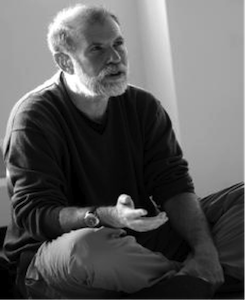 Mitchell Thomashow works independently, consulting with colleges and universities on climate, sustainability, environmental studies, and organizational process. Previously he was a Sustainability Catalyst Fellow at Philanthropy Northwest in Seattle (2016-2017), the Director of the Presidential Fellows Program at Second Nature (2012-2015), the President of Unity College in Maine (2006-2011), and the Chair of the Environmental Studies program at Antioch University New England (1976-2006). His new book, To Know the World: A New Vision for Environmental Learning will be published by The MIT Press in Fall 2020. His previous books include Ecological Identity, Bringing the Biosphere Home, and The Nine Elements of a Sustainable Campus, all published by the MIT Press. You can learn more about his work at www.mitchellthomashow.com. He lives in the hill country of the Monadnock Region in New Hampshire.
Mitchell Thomashow works independently, consulting with colleges and universities on climate, sustainability, environmental studies, and organizational process. Previously he was a Sustainability Catalyst Fellow at Philanthropy Northwest in Seattle (2016-2017), the Director of the Presidential Fellows Program at Second Nature (2012-2015), the President of Unity College in Maine (2006-2011), and the Chair of the Environmental Studies program at Antioch University New England (1976-2006). His new book, To Know the World: A New Vision for Environmental Learning will be published by The MIT Press in Fall 2020. His previous books include Ecological Identity, Bringing the Biosphere Home, and The Nine Elements of a Sustainable Campus, all published by the MIT Press. You can learn more about his work at www.mitchellthomashow.com. He lives in the hill country of the Monadnock Region in New Hampshire.
Environmental Racism and the Nuclear Fuel Cycle
Nuclear energy is considered a sustainable resource because of the low carbon emission output it creates, but uranium deposits are not finite. The U.S. does not have a clear and safe way of handling nuclear waste from powerplants, and is proposing consolidated interim storage (CIS) sites for the waste. Federally recognized tribal lands have exemptions from environmental laws and regulations creating them a target for the CIS sites for high level nuclear waste. Although CIS sites have been proposed off tribal lands, the proposal sites are located within low-income and minority communities. If these sites were chosen, high level nuclear waste would still be taken through tribal lands and communities. This talk will focus on how environmental racism plays into the nuclear fuel cycle, and what many groups (including my Nuclear Issues Study Group) are doing to create community involvement and change in the nuclear industry.
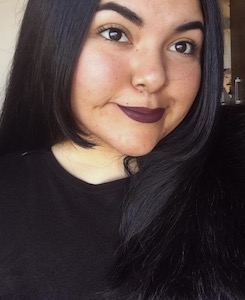
Sustainable Business—Oxymoron? or Business Imperative?
There is a widespread notion that "sustainability" and "business" are completely unrelated concepts or even negatively related. This presentation will address this negative characterization to describe: sustainable business frameworks that are in place and used by current businesses; the "business case" for all businesses to consider sustainability; examples of businesses that have made notable efforts to decrease their negative impacts; and what consumers can look for if they are interested in supporting businesses that are more sustainable. Sustainable practices are our undeniable future; understanding how business can behave sustainably and how it can be a force for resilience in the climate-changed world we have created will help prepare us to rise to the challenges, recognize the opportunities, and help to leave this world a better place.
 April Atwood is a senior instructor at Seattle University, where she teaches courses in consumer behavior, marketing principles, marketing and social issues, and sustainability. She has decades of teaching experience at the University of Washington, and she was been on the faculty at Bainbridge Graduate Institute (accredited MBA program in Sustainable Business) from its third year of operations. She has also taught at Pinchot University and Presidio Graduate School (Sustainable Business MBA programs). April completed her PhD at Ohio State, where she conducted research on visual and non-visual imagery effects on consumer learning. She has consulted many organizations over the years, including King County Solid Waste Division work on marketing recyclable materials, Northwest Kidney Foundation work on attitudes and behavior change in dialysis patients, and program evaluation and member research for faith communities. She is Vice-Chair of the King County Solid Waste Advisory Committee and she is Vice-President of the board of directors for Northwest School for Deaf and Hard of Hearing Children. She has been published in Advances in Consumer Research, Marketing Theory and Applications, and Journal of Sustainability Education.
April Atwood is a senior instructor at Seattle University, where she teaches courses in consumer behavior, marketing principles, marketing and social issues, and sustainability. She has decades of teaching experience at the University of Washington, and she was been on the faculty at Bainbridge Graduate Institute (accredited MBA program in Sustainable Business) from its third year of operations. She has also taught at Pinchot University and Presidio Graduate School (Sustainable Business MBA programs). April completed her PhD at Ohio State, where she conducted research on visual and non-visual imagery effects on consumer learning. She has consulted many organizations over the years, including King County Solid Waste Division work on marketing recyclable materials, Northwest Kidney Foundation work on attitudes and behavior change in dialysis patients, and program evaluation and member research for faith communities. She is Vice-Chair of the King County Solid Waste Advisory Committee and she is Vice-President of the board of directors for Northwest School for Deaf and Hard of Hearing Children. She has been published in Advances in Consumer Research, Marketing Theory and Applications, and Journal of Sustainability Education.
Investing in a Sustainable Future
As part of the larger movement to divest from fossil fuels, Seattle University divested its shares in 2019 as a result of prolonged student and staff activism. In this talk, members of Sustainable Student Action – an on-campus environmental justice student group will discuss the additional importance of investing capital into sources that pursue environmental and social sustainability. SSA will discuss their research on socially responsible investment (SRI) portfolios including the features of the portfolio options that SU currently offers to its faculty and staff. Additionally, they will discuss the financial and ethical benefits of divesting from fossil fuels and investing in SRI’s and will hold space to allow all in attendance to consider next steps.
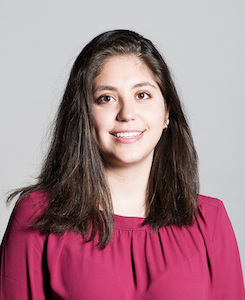 Sadie Lopez is a fourth year Seattle University student majoring in business management with a minor in English Literature. Throughout her time at Seattle University she has been actively involved in Sustainable Student Action and their divestment campaign. Beyond working with Sustainable Student Action Sadie is actively involved with other student groups on campus, such as MEChA.
Sadie Lopez is a fourth year Seattle University student majoring in business management with a minor in English Literature. Throughout her time at Seattle University she has been actively involved in Sustainable Student Action and their divestment campaign. Beyond working with Sustainable Student Action Sadie is actively involved with other student groups on campus, such as MEChA.
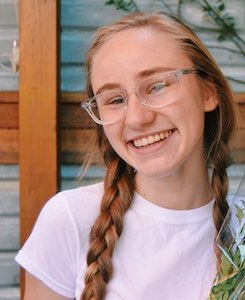 Emily Nielsen is a second year student majoring in Public Affairs and Political Science with a specialization in Urban Planning and Sustainability. She is an intern with Seattle University’s Center for Environmental Justice and Sustainability and an active member of Sustainable Student Action.
Emily Nielsen is a second year student majoring in Public Affairs and Political Science with a specialization in Urban Planning and Sustainability. She is an intern with Seattle University’s Center for Environmental Justice and Sustainability and an active member of Sustainable Student Action.
Dining Together Online
There are over 34 million single person households in the United States, which leaves many to eat meals unaccompanied. Capitalizing on the social, economic, and environmental benefits of humans eating together, Stephenson will present a game/activity exploring the benefits of forming relationships with others through dining together online. Finding ways to maintain relationships nowadays, given the current social distancing guidelines, is especially relevant. Social isolation can lead to loneliness and stress which can weaken the immune system and quality of life. By dining together online, individuals can find community over a good meal. Basic rules and guidelines will be presented.
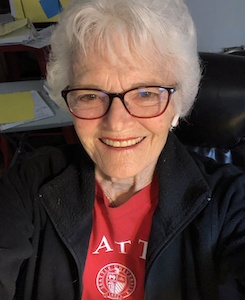 Harriet Stephenson is a Professor Emeritus at Seattle University who taught for 47 years in the Albers School of Business and Economics. For the past 3 years, Stephenson has been immersed in experiencing and researching Dining Together Online. Her findings are particularly relevant given the current social distancing guidelines.
Harriet Stephenson is a Professor Emeritus at Seattle University who taught for 47 years in the Albers School of Business and Economics. For the past 3 years, Stephenson has been immersed in experiencing and researching Dining Together Online. Her findings are particularly relevant given the current social distancing guidelines.
Sports and Sustainability
Recently the United Nations announced the Sports for Climate Action Framework to engage the entire sport sector in efforts to combat climate change and to leverage the sector’s social platform to promote sustainable behaviors to new populations. Despite this widespread membership and public declaration to sustainable business practices, many sport organizations do not promote their sustainable business practices much less report on them (McCullough & Pelcher, 2018). This gap between stated values and lack of reporting is commonplace in the sport sector and differs from other business sectors. This talk will focus on the current status of environmental sustainability in the sport sector and what can be done to best leverage sport’s global platform to address the global issue of climate change.
 Brian McCullough joined the faculty of the Albers School in the fall of 2018. He earned a Ph.D. in Sport Management from Texas A&M University. His research examines the intersection of environmental sustainability in the sport sector. Dr. McCullough is the lead editor on the text Routledge Handbook of Sport and the Environment. Most recently, he has worked with the United Nation’s Climate Change Secretariat to assist with the creation of the Sports for Climate Action Framework, which was announced at COP24 in Poland. The initiative is intended to engage the sport sector to meet the Paris Climate Agreement goals of carbon neutrality. In 2018, Dr. McCullough was awarded a grant from the International Olympic Committee to examine perceptions of the Los Angeles 2028 Summer Olympic Games sustainability initiatives among local residents. Also, Dr. McCullough is the Co-Director of the Sport Ecology Group, an online consortium of researchers seeking to amplify the environmental sustainability efforts in the sport sector.
Brian McCullough joined the faculty of the Albers School in the fall of 2018. He earned a Ph.D. in Sport Management from Texas A&M University. His research examines the intersection of environmental sustainability in the sport sector. Dr. McCullough is the lead editor on the text Routledge Handbook of Sport and the Environment. Most recently, he has worked with the United Nation’s Climate Change Secretariat to assist with the creation of the Sports for Climate Action Framework, which was announced at COP24 in Poland. The initiative is intended to engage the sport sector to meet the Paris Climate Agreement goals of carbon neutrality. In 2018, Dr. McCullough was awarded a grant from the International Olympic Committee to examine perceptions of the Los Angeles 2028 Summer Olympic Games sustainability initiatives among local residents. Also, Dr. McCullough is the Co-Director of the Sport Ecology Group, an online consortium of researchers seeking to amplify the environmental sustainability efforts in the sport sector.
Where are the Leftovers?
Did you know that 1 in 6 Americans face food insecurity? This presentation will cover the massive social, economic, and environmental consequences of food waste and the related insecurity in accessing affordable, whole, and healthy produce. It severely impacts the wellbeing of people’s lives; is a significant burden on economies; and food waste releases destructive amounts of methane gas into the atmosphere. This may seem like an impossible issue, but it really is an opportunity to have the greatest impact on the planet, the happiness of all people, and the survival of modern economies. We will be giving this presentation on behalf of Seattle University’s Chapter of the Food Recovery Network and Redhawk Dining.
 Taylor McKenzie is a second-year double major in Environmental Studies and Women, Gender, and Sexuality Studies. She is the co-founder of Seattle University's chapter of the Food Recovery Program and the current Volunteer Coordinator for the club. Taylor is an active member within several sustainability-related groups on campus, including Food for All Stewards, and a Sustainability Mentor for North Campus Residence Hall Association. She is also a Doris Duke Conservation Scholar with the University of Michigan and will be studying food accessibility and diversity within farmers markets over summer.
Taylor McKenzie is a second-year double major in Environmental Studies and Women, Gender, and Sexuality Studies. She is the co-founder of Seattle University's chapter of the Food Recovery Program and the current Volunteer Coordinator for the club. Taylor is an active member within several sustainability-related groups on campus, including Food for All Stewards, and a Sustainability Mentor for North Campus Residence Hall Association. She is also a Doris Duke Conservation Scholar with the University of Michigan and will be studying food accessibility and diversity within farmers markets over summer.
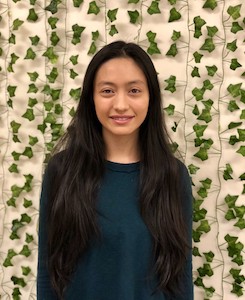
Dae Durisko attended Seattle University focusing on Environmental Studies with a specialization in Ecological Systems. She is the co-founder of Seattle University's Food Recovery Program and the current Logistics Coordinator for the program. Her senior thesis focused on food waste and how over production in the United States negatively impacts the environment and socially vulnerable demographics. She is also on the Partners for Sustainability Committee at Starbucks. In her spare time, she is working on forming the SU Sustainability Coalition through the Alumni Association. As a environmental advocate, she loves empowering and supporting individuals to create sustainable changes in their lives and in their community.
Greenwashing - We Can All Do Better
This presentation will cover the basics of greenwashing. It will begin with a brief discussion of the historical background on this concept, and then transition into some of the guidance and real world examples of greenwashing that we can draw from. The bulk of the presentation will be a framework, grounded in regulatory and other guidance, for how we can be more authentic and credible when we describe the sustainable attributes of products and services. This talk will set students and practitioners up for success, while also emphasizing that the framework and best practices discussed during the talk can be applied to everyday life, including consumer decision making and corporate accountability.
 Nicole De Namur is a Seattle-based attorney whose practice focuses on insurance coverage and construction litigation. She is a LEED® Green Associate™ with a passion for the intersection of sustainable building design, construction, and the law. Nicole regularly presents on her holistic and proactive approach to risk management and the legal issues associated with sustainable buildings. She is an Affiliate Instructor at the University of Washington’s Runstad Center for Real Estate Studies, where she developed the content for the interdisciplinary course, Risk and Reward in Sustainable Development. Nicole also developed the content for, and teaches, Policy and Planning, part of the Master’s Program in Design for Human Health at Boston Architectural College.
Nicole De Namur is a Seattle-based attorney whose practice focuses on insurance coverage and construction litigation. She is a LEED® Green Associate™ with a passion for the intersection of sustainable building design, construction, and the law. Nicole regularly presents on her holistic and proactive approach to risk management and the legal issues associated with sustainable buildings. She is an Affiliate Instructor at the University of Washington’s Runstad Center for Real Estate Studies, where she developed the content for the interdisciplinary course, Risk and Reward in Sustainable Development. Nicole also developed the content for, and teaches, Policy and Planning, part of the Master’s Program in Design for Human Health at Boston Architectural College.
Call an Online Climate Assembly Where You Live
The majority of Americans now think climate change is real. (At last!) So how do we the hyper-consumers eliminate pollution fast enough to survive, given that corporations own our democracy? We trust random strangers more than elected politicians... and that's the key! Starting today, students call for Citizens' Assemblies on Climate, like those wrapping up in the UK and France, to give Life one last fighting chance. Climate Assembly Washington is a handful of activists preparing to stage an independent, non-partisan Assembly this summer online. Our goal: deliver to candidates the informed will of the people on climate policies and make November 2020 a referendum on immediate solutions to climate chaos, locally and nationally, for both parties. We need each of you to help us this month to defeat corruption, lobbyists, party politics, and polluters using direct democracy (and social distancing). Join us!
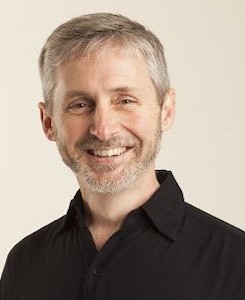 Michael Foster, M.Ed. in Counseling Psych, volunteers and commits civil disobedience to recover our future. He founded Climate Change for Families, co-founded 350Seattle, and helped youth to sue Washington state in court. He shut down the Keystone 1 pipeline. He supports www.ClimateAssembly.us online Summer 2020 and #RentStrike #DebtStrike
Michael Foster, M.Ed. in Counseling Psych, volunteers and commits civil disobedience to recover our future. He founded Climate Change for Families, co-founded 350Seattle, and helped youth to sue Washington state in court. He shut down the Keystone 1 pipeline. He supports www.ClimateAssembly.us online Summer 2020 and #RentStrike #DebtStrike
